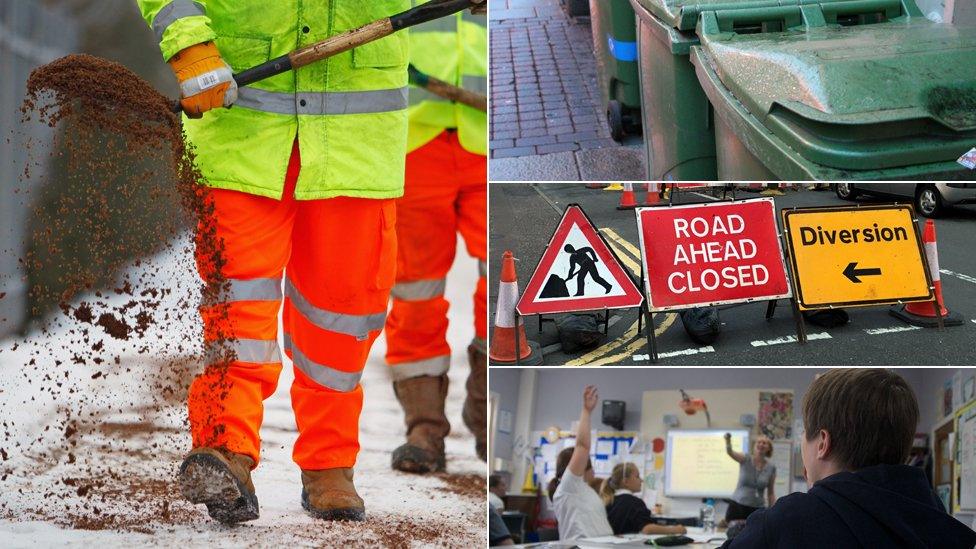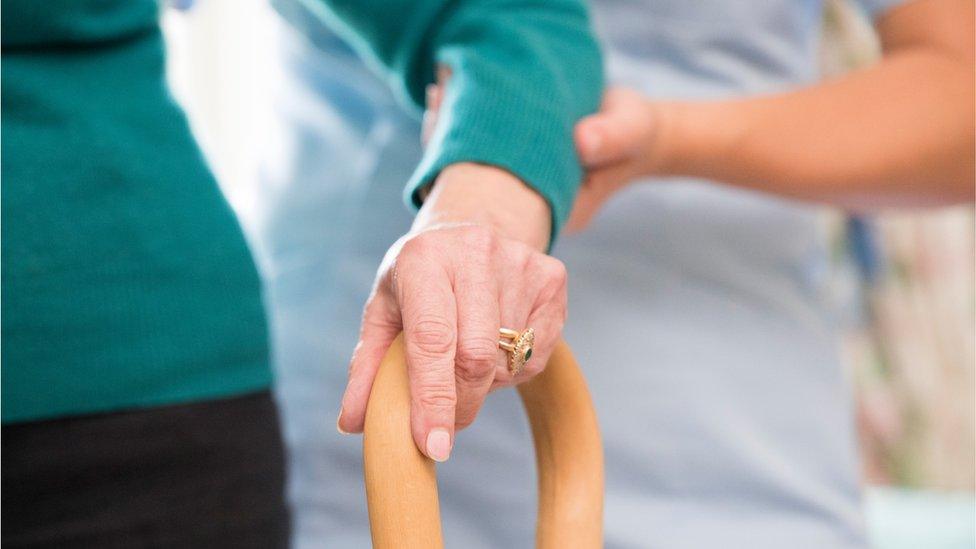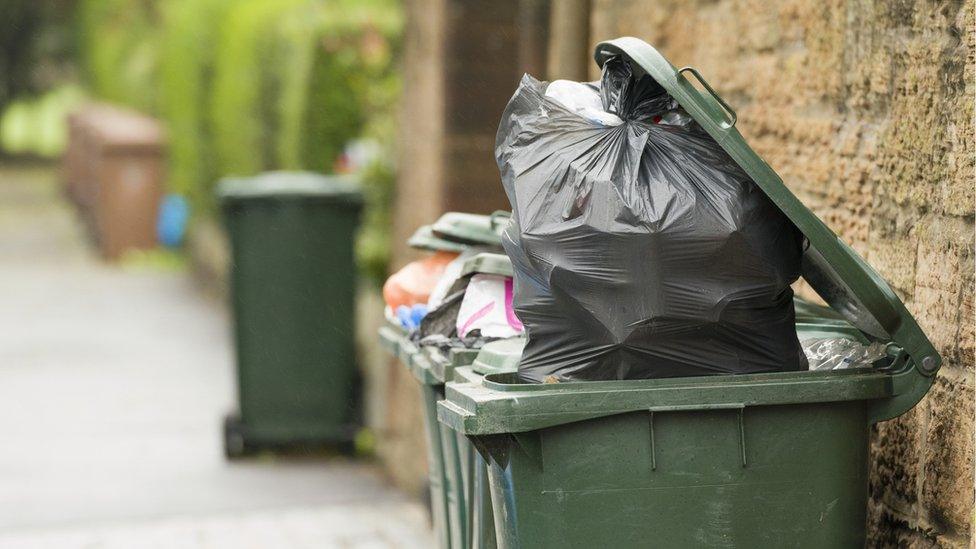Councils increasingly relying on reserves to balance books
- Published

The watchdog said councils have experienced a real terms funding drop over the last five years
Most of Scotland's 32 councils are increasingly relying on money from their reserves, according to a report from the public spending watchdog.
The Accounts Commission says some councils are using the reserve funds to keep up with demand for services and balance their budgets.
It said local authorities had faced a 7.6% real terms drop in government funding since 2013/14.
The Scottish government insisted the 2019/20 funding settlement was "fair."
The Accounts Commission report comes as local authorities are set to get some new powers, including a levy on workplace parking.
It found that Scottish government funding to councils has dropped more significantly than for other services, which have seen a 0.4% drop in real terms since since 2013/14.


Most councils have tapped into their reserves in recent years. These reserves are meant to be there for emergencies - not everyday spending commitments.
Even where a council feels it can prudently use up some of its reserves, there is always the risk that it may find that it does not have enough put aside when that rainy day comes.
Councils have long argued they need more financial powers and freedoms. But there is a difference between having a power and using it.
This year, many councils chose not to put up the council tax by the full amount by which they were permitted to increase it (the 4.8% increase was agreed by the government in return for support from the Greens).
The extra money a council may have gained from a maximum rise may not have been enough to see off cuts, savings and extra efficiencies. But any council that opted for a smaller rise was, in effect, voluntarily foregoing some cash so might find it harder to argue convincingly that they weren't getting enough from central government.

The gap between other spending areas and local authority funding narrowed from 2017/18 to 2018/19 but there was still a difference of 7.2%.
To battle the funding gaps, more authorities are being forced to dip into reserves when savings are not able to be made, the report found.
Over the last three years, 23 of Scotland's 32 local authorities have drawn from their reserves, with a net reduction in the amount held by councils of £45m at the end of last year, the second year in a row when council savings have seen a net reduction.
The report also raised concerns over the state of Scotland's Integration Joint Boards, bodies put in place to bring together health and social care.

Social care workers offer a vital service for the elderly
The chairman of the Accounts Commission said the position of the boards was becoming "increasingly unsustainable".
According to the report, IJBs have struggled to balance their budgets, with 19 of the 30 relying on extra funding from partners to ensure they would not be left with a deficit.
Without the extra cash injection, the boards would have lost £58m last year.
The Accounts Commission also said the pace of integration was too slow, suggesting that could be down to inconsistency as a third of senior staff at IJBs were replaced last year.
Rethinking services
Graham Sharp, the chairman of the Accounts Commission, said: "We urgently need much faster progress in the reform of our health and social care services.
"The current position is increasingly unsustainable.
"There's a need for councils to continue rethinking how they deliver services, as well as look at ways to increase their income.
"For some councils in Scotland, finding ways to do this is getting more and more difficult as their current income doesn't match demand."
The Scottish government disputed some of the figures in the report.
A spokesman said: "Despite further UK government cuts to the Scottish budget, we have ensured our partners in local government receive a fair funding settlement, delivering a funding package of £11.2bn for all local authorities in 2019-20 - a real-terms increase of more than £310m, or 2.9%.
"Contrary to the Accounts Commission's claim that local authority revenue funding reduced by 0.7% in real terms, Scottish government revenue funding in 2018-19 increased by 0.3% in real terms compared with 2017-18."
Councillor Gail Macgregor, resources spokeswoman for the council body Cosla said: "This report clearly states how Scottish councils have borne the brunt of Scottish government cuts.
"While the Scottish government's revenue funding has fallen by 0.4% since 2013/14, council funding has fallen 18 times this by 7.2%.
"At the same time, demand for essential council services has continued to grow and the Scottish government expects councils to deliver more and more national policies."
- Published29 November 2018
